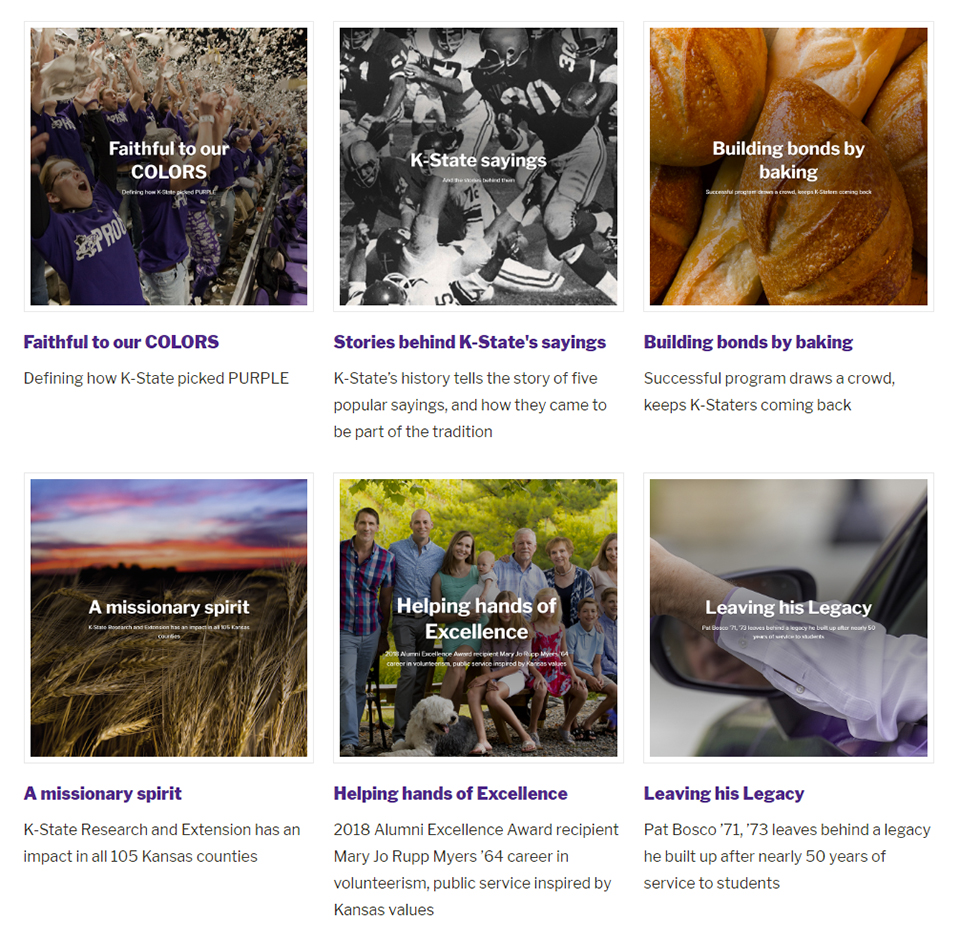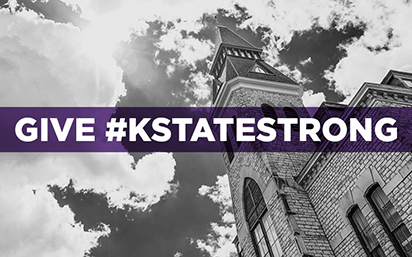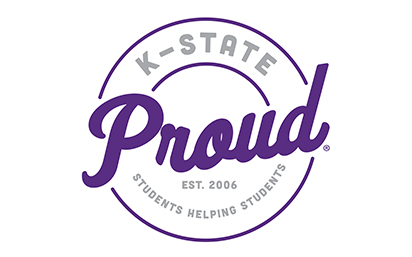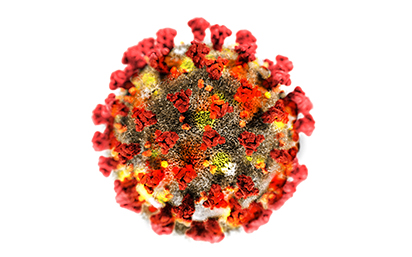
Update on the K-State response to COVID-19
As the coronavirus pandemic continues to impact lives around the globe, Kansas State
University is maintaining a limited operations status in compliance with state and
national guidelines.
Although students may not be present on campus right now, the university is carrying
on the land-grant tradition of providing an accessible education and bettering the
community. Students are learning through online classes, and faculty and staff are
finding creative ways to work remotely.
K-State provost and executive vice president Chuck Taber announced that the university
has made the decision to continue remote teaching and learning for intersession and
summer school 2020 sessions. All K-State summer school courses on all campuses will
be online. Recognizing the financial challenges facing students and families, the
university also is significantly reducing online fees for summer school undergraduate
and graduate courses this year. Learn more
The university also will extend its limit on face-to-face campus gatherings until
at least July 31. The university is forming a special work group to develop a phased-in
plan for the resumption of in-person activities. The group will develop timelines
for key activities, including classes, research and events. Key factors in the reopening
process will include the scope of the pandemic, the availability of widespread testing,
and recommendations from federal, state and local health officials.
“Protecting the health and well-being of our students, faculty and staff, and our
host communities remain top priorities,” Taber said. “We are hopeful that in the coming
months, restrictions to in-person gatherings will be gradually lifted and our campuses
will resume normal operations by the fall. We are all looking forward to having our
students and the entire K-State family back on our campuses. Please continue to take
care of yourselves and each other and stay #kstatestrong.”
Read on for a summary of other news updates related to K-State and COVID-19:
Educating online
The university has announced a new A/Pass/Fail course grading option to help with
the complications of moving to online operations. Students will have until May 8 to
decide how they want to be graded for each course they are taking for the spring 2020
semester. The confidential option is to have a course graded by a letter grade or
by the pass/fail system. Learn more
K-State faculty members also have successfully adapted to teaching remotely during
this time of quarantine.
“Teaching from home is working well,” reports Mo Hosni, professor of mechanical and
nuclear engineering and the Charles and Nona Frankenhoff chair in engineering. “I
have had no technology problems thus far, student attendance is great and they are
participating well. The time and effort I am putting into this course now are probably
more than lecturing in the classroom, but again, student learning has been and continues
to be my No. 1 priority. I am happy to do whatever it takes to help them master the
material.”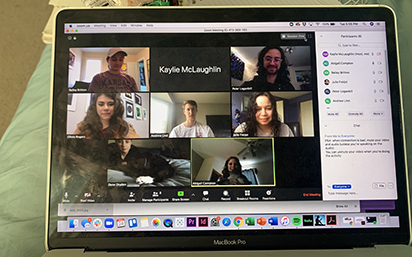 Meanwhile, K-State journalism and mass communications students are learning valuable
lessons about communicating in times of crises. With the university’s move to limited
on-campus operations, the Kansas State Collegian staff recently relaunched the student newspaper’s online newsletter. It is posted on Mondays, Wednesdays and Fridays, which were the paper’s regular
print days. The Collegian has been running a feature series that spotlights how the pandemic is affecting individual
students, including a first-generation student, an international student, a student
from China, a graduating senior, a job-hunting student and others who have found ways
to cope.
Meanwhile, K-State journalism and mass communications students are learning valuable
lessons about communicating in times of crises. With the university’s move to limited
on-campus operations, the Kansas State Collegian staff recently relaunched the student newspaper’s online newsletter. It is posted on Mondays, Wednesdays and Fridays, which were the paper’s regular
print days. The Collegian has been running a feature series that spotlights how the pandemic is affecting individual
students, including a first-generation student, an international student, a student
from China, a graduating senior, a job-hunting student and others who have found ways
to cope.
“Technology is helping us a lot right now,” said editor-in-chief Kaylie McLaughlin,
junior in journalism and mass communications. “We have weekly full editorial meetings,
regular individual meetings and desk specific meetings as needed exclusively using
Zoom.”
Helping the community
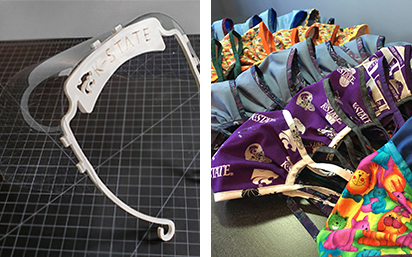 Area health care organizations are getting custom-made face shields and cloth face
masks to help prevent the spread of COVID-19, courtesy of K-State.
Area health care organizations are getting custom-made face shields and cloth face
masks to help prevent the spread of COVID-19, courtesy of K-State.
College of Architecture, Planning and Design students are 3D-printing face shields,
while the Department of Interior Design and Fashion Studies in the College of Health
and Human Sciences has teamed up with the K-State Office of Community Relations and
Department of Environmental Health and Safety for a project to sew face masks.
The face shields are being made by students in the Digital Fabrication Club, or DigiFab
Club. The shields feature the K-State Powercat and the word “K-State.” Based on an
open-source design plan, the shields are produced using the college’s 3D-printing
and laser-cutting resources. Learn more
K-State faculty members are working at the Kansas Department of Health and Environment
to help with COVID-19 testing at the department’s laboratory in Topeka, Kansas, and
labs and colleges across K-State have contributed more than 60,000 items of critical
personal protective equipment, or PPE, to the Kansas Division of Emergency Management
and the Riley County Emergency Operations Center to distribute to health care professionals
at the state and county levels. The items include 58,500 gloves and nearly 1,600 N95
masks. Other contributions include lab coats, testing equipment and safety goggles.
Learn more
The Veterinary Health Center at K-State also remains open to provide care for urgent
and emergency animal patients. It also has taken measures to protect the safety of
hospital staff and the community by making scheduling adjustments. These adjustments
include a drop-off concierge protocol and a new discharge protocol, just to name a
few. Learn more
“As the state’s land-grant university, it is K-State’s mission to serve our state,
nation and world, so it’s not surprising to see how K-Staters have stepped up to take
on this fight,” said Richard Myers ’65, K-State president. “Whether in the lab, helping
in the community or connecting people globally, K-State is making a difference.”


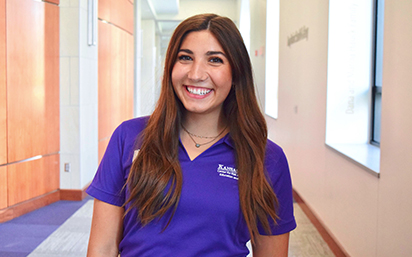 What are some of the ways you have been impacted by the university’s limited operations
this semester and the COVID-19 pandemic? What are some of the challenges you’ve faced
as you approach your graduation?
What are some of the ways you have been impacted by the university’s limited operations
this semester and the COVID-19 pandemic? What are some of the challenges you’ve faced
as you approach your graduation?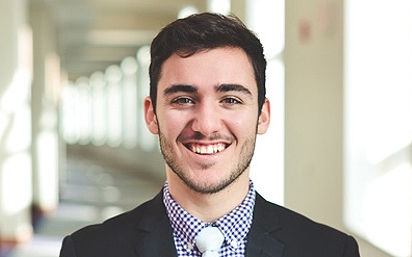 What are some of the ways you have been impacted by the university’s limited operations
this semester and the COVID-19 pandemic? What are some of the challenges you’ve faced
as you approach your graduation?
What are some of the ways you have been impacted by the university’s limited operations
this semester and the COVID-19 pandemic? What are some of the challenges you’ve faced
as you approach your graduation?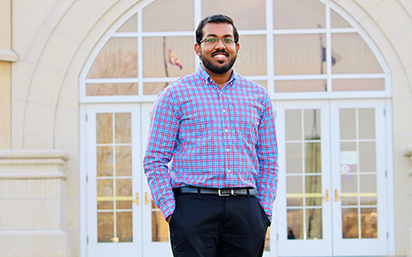 What are some of the ways you have been impacted by the university’s limited operations
this semester and the COVID-19 pandemic? What are some of the challenges you’ve faced
as you approach your graduation?
What are some of the ways you have been impacted by the university’s limited operations
this semester and the COVID-19 pandemic? What are some of the challenges you’ve faced
as you approach your graduation?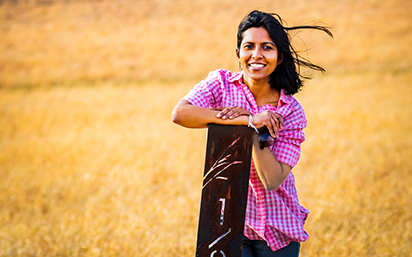 What are some of the ways you have been impacted by the university’s limited operations
this semester and the COVID-19 pandemic? What are some of the challenges you’ve faced
as you approach your graduation?
What are some of the ways you have been impacted by the university’s limited operations
this semester and the COVID-19 pandemic? What are some of the challenges you’ve faced
as you approach your graduation?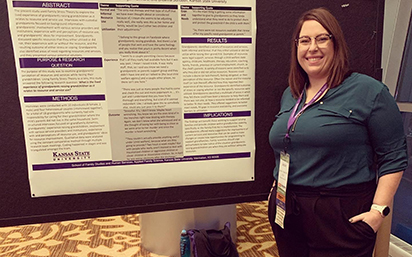 What are some of the ways you have been impacted by the university’s limited operations
this semester and the COVID-19 pandemic? What are some of the challenges you’ve faced
as you approach your graduation?
What are some of the ways you have been impacted by the university’s limited operations
this semester and the COVID-19 pandemic? What are some of the challenges you’ve faced
as you approach your graduation?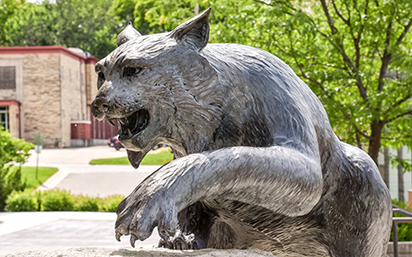
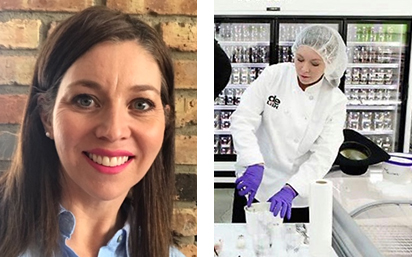
 Through her work at Kemps, Julstrom even got to appear on the Celebrity Apprentice TV series, which she calls a “once in a lifetime experience.”
Through her work at Kemps, Julstrom even got to appear on the Celebrity Apprentice TV series, which she calls a “once in a lifetime experience.”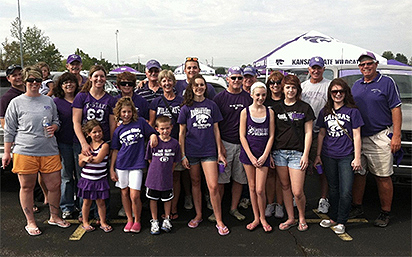 Currently working in sales, Julstrom said she likes to keep growing and challenging
herself when it comes to her career. Right now she is enjoying helping customers achieve
their goals and visions. Having a technical background in food science helps her anticipate
their needs.
Currently working in sales, Julstrom said she likes to keep growing and challenging
herself when it comes to her career. Right now she is enjoying helping customers achieve
their goals and visions. Having a technical background in food science helps her anticipate
their needs.
